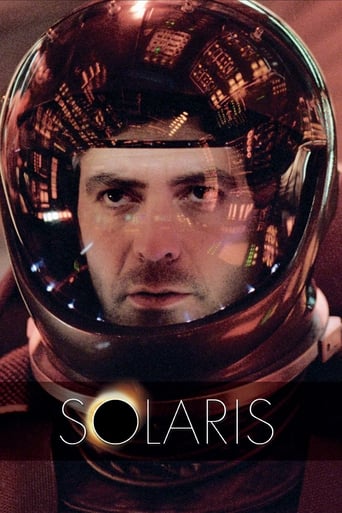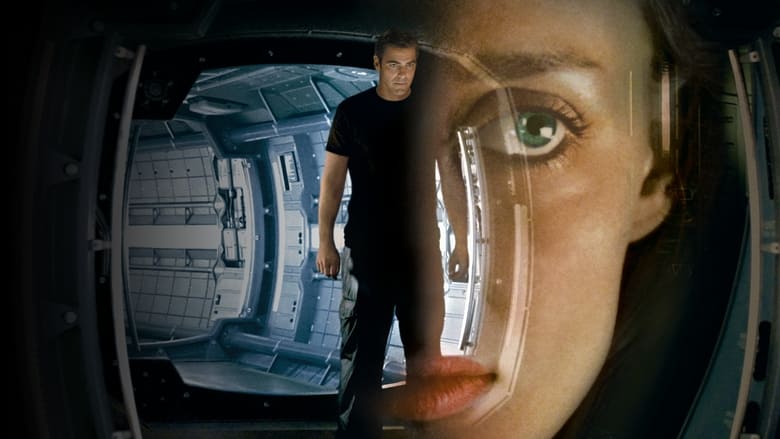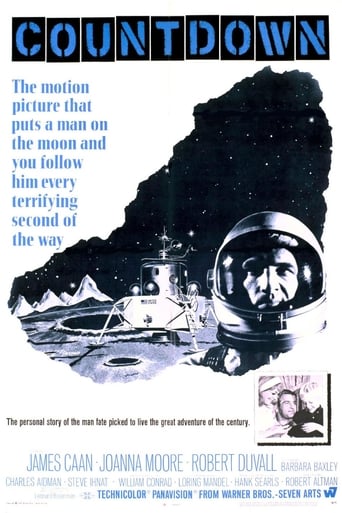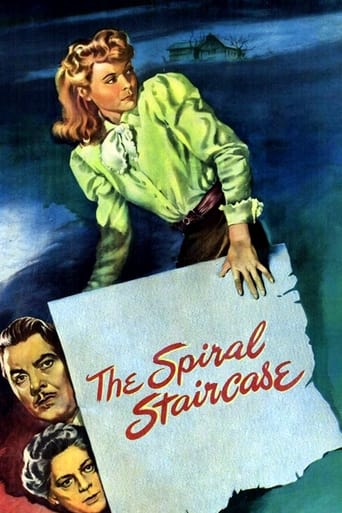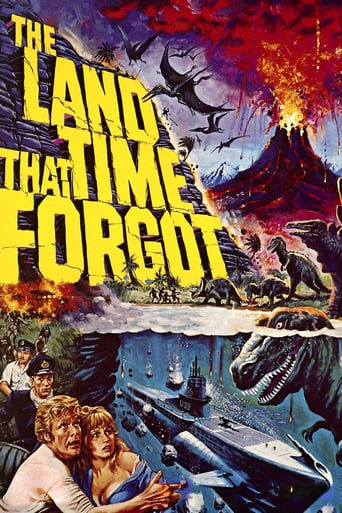Solaris (2002)
A troubled psychologist is sent to investigate the crew of an isolated research station orbiting a bizarre planet.
Watch Trailer
Cast


Similar titles
Reviews
Waste of time
Nice effects though.
Far from Perfect, Far from Terrible
The movie really just wants to entertain people.
I have not seen the original...yet. So no comparison here. The whole movie I was thinking "this is flat" "this has no depth". Great visuals, score is only so-so. Acting was subdued, on purpose no doubt. Then came the positive but detached feeling afterwards. The is a mildly uplifting movie but in a out-of-body-feeling way. Watch it. Hang with it until the end. A nice job all the way around and a movie the feels like nothing else I've seen.
Once again we have people complaining about their boredom. It's so slow. A true psychological drama may appear slow because the person watching has such a short attention span and a limited world view. There, I've said it, Mister 1 out of 10. I prefer the Russian version of this book by Stanislaw Lem, but this is a worthy interpretation. The planet Solaris has an affect on anyone that approaches it. It is a sentient organism and so it isn't there to be exploited; it's there to protect itself. When George Clooney's character is called to investigate the goings on at a space station that has been set up to investigate access to a water planet, he walks into a surreal mass of images and tricks. Something is causing personages to appear on board the space station. A child who should not be there runs down a hallway. People are committing suicide or running away, frightened or overwhelmed by emotions. Clooney, despite being a rock, still succumbs to the planet's trickery because of his great love for his lost wife. I often like to look to movies for an intellectual challenge. It doesn't always work, but there are few that don't offer something to think about.
Solaris (2002): Dir: Steven Soderbergh / Cast: George Clooney, Natascha McElhone, Jeremy Davies, Viola Davis, Ulrich Tukur: Ominous film starring George Clooney as a psychologist receiving a message to travel to a space station. He arrives to sheer silence with dry blood painting various areas. Eventually he finds two individuals who attempt to provide information and warnings but Clooney chooses to remain. Jeremy Davies attempts to explain the situation without really explaining it. Viola Davis prefers to remain in her room. Clooney's sleep is interrupted by memories of his wife and her suicide. Intriguing despite questionable conclusion but director Steven Soderbergh is skilled at its mystery in terms of its cross over from reality to dream like state of being. Soderbergh and Clooney both previously worked on the entertaining Out of Sight and the overrated Ocean's Eleven. Clooney is in his element playing an individual shocked at the experience yet faced with haunting memories. Natascha McElhone mirrors the fragile confusion of his wife whose image enslaves his thoughts. Jeremy Davies and Viola Davis seem to evaporate but they steal their scenes when they are on screen. Other roles are much less broad and not very interesting. An unsettling visual achievement ripe with ideas, but it addresses how others are presented in our mindset. Score: 6 ½ / 10
While Tarkovsky's "Solaris" shows the problem of morality, the ability to "remain human in inhuman conditions", Soderbergh used the image of sapient ocean for analysis of relationship between men and women , but it seemed to me, even more so, for understanding of God. What is Solaris, what it wants? Chris is asked to not try to look for the answers, to not try to understand, but to make a choice. It is, of course, existential despair of man beholding unfathomable, but at the same time it is negation of despair. And whether is it so important to comprehend, to find answers, to "win"? Is it so important to make something your way, "to prove" your superiority? Or is it more important to make the right choice, a choice in favour of happiness, not the satisfaction of petty ambitions, false pride and vanity?

